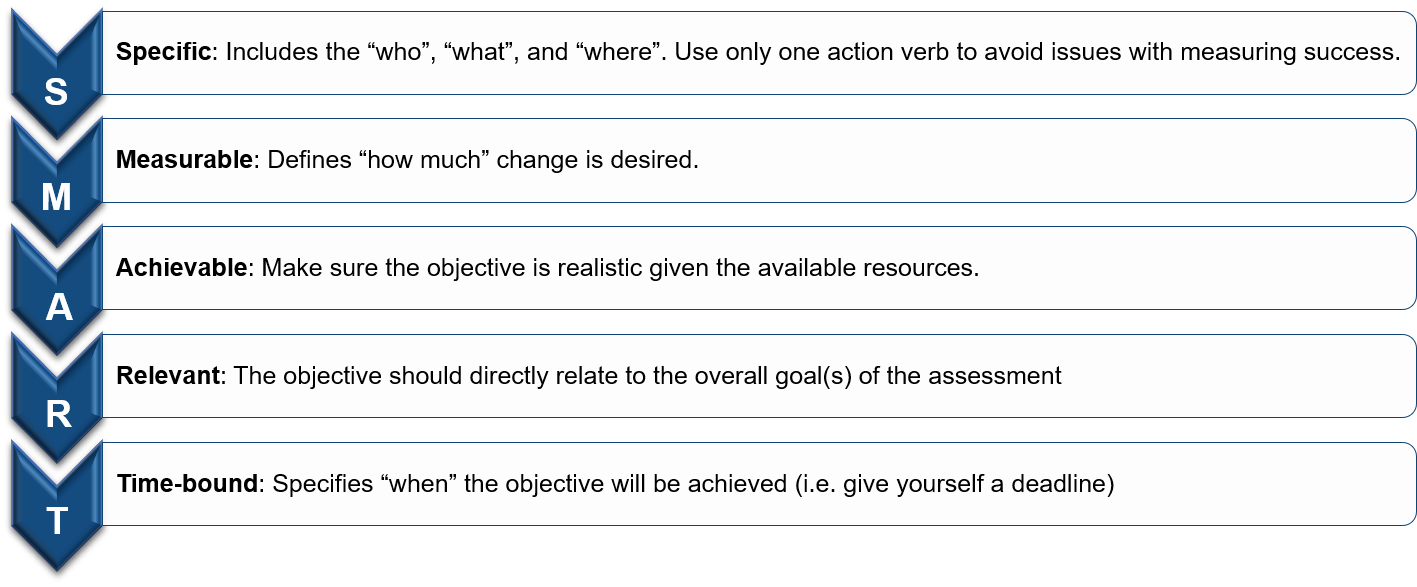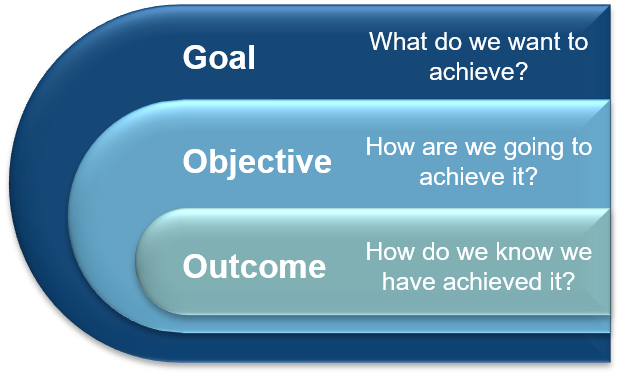Assessment Guidance: Development of Goals, Objectives, and Expected Outcomes
Now that you know the scope of your project, it is time to articulate the goals, objectives, and outcomes of the assessment.
Goals are broad, general statements about what you wish to accomplish with the assessment in the long term. Goals provide the framework for defining more specific assessment objectives and outcomes.
Objectives define the steps you will take to achieve the goals of the assessment. Objectives should be SMART:

Outcomes define the specific results you wish to accomplish. There should be at least one outcome associated with every objective.
Resources
- Download the objective development worksheet to help guide you through this process!
- Doran, G. T. (1981). "There's a S.M.A.R.T. way to write management's goals and objectives". Management Review. 70 (11): 35–36.


